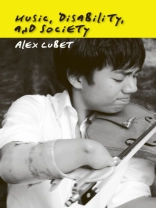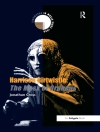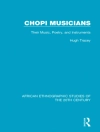Musical talent in Western culture is regarded as an extraordinary combination of technical proficiency and interpretative sensitivity. In Music, Disability, and Society, Alex Lubet challenges the rigid view of technical skill and writes about music in relation to disability studies. He addresses the ways in which people with disabilities are denied the opportunity to participate in music.Elaborating on the theory of "social confluence, " Lubet provides a variety of encounters between disability and music to observe radical transformations of identity. Considering hand-injured and one-handed pianists; the impairments of jazz luminaries Django Reinhardt, Horace Parlan, and "Little" Jimmy Scott; and the "Blind Orchestra" of Cairo, he shows how the cultural world of classical music contrasts sharply with that of jazz and how musicality itself is regarded a disability in some religious contexts. Music, Disability, and Society also explains how language difference can become a disability for Asian students in American schools of music, limiting their education and careers.Lubet offers pungent criticism of the biases in music education and the music profession, going so far as to say that culture disables some performers by adhering to rigid notions of what a musician must look like, how music must be played, who may play it, and what (if any) is the legitimate place of music in society. In Music, Disability, and Society, he convincingly argues that where music is concerned, disability is a matter of culture, not physical impairment.
Lubet Alex Lubet
Music, Disability, and Society [PDF ebook]
Music, Disability, and Society [PDF ebook]
Acquista questo ebook e ricevine 1 in più GRATIS!
Lingua Inglese ● Formato PDF ● Pagine 199 ● ISBN 9781439900277 ● Casa editrice Temple University Press ● Pubblicato 2010 ● Scaricabile 3 volte ● Moneta EUR ● ID 5885704 ● Protezione dalla copia Adobe DRM
Richiede un lettore di ebook compatibile con DRM












